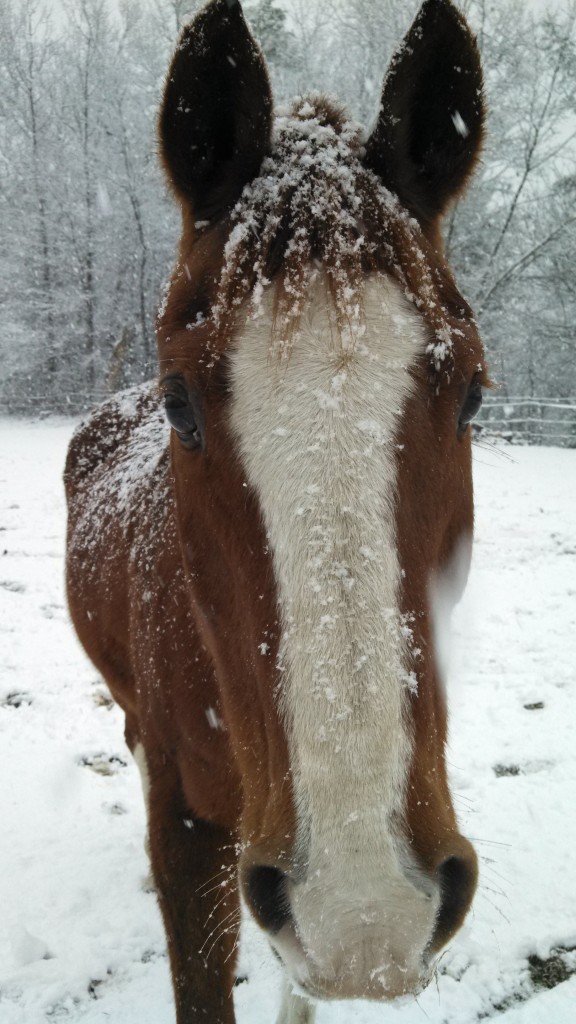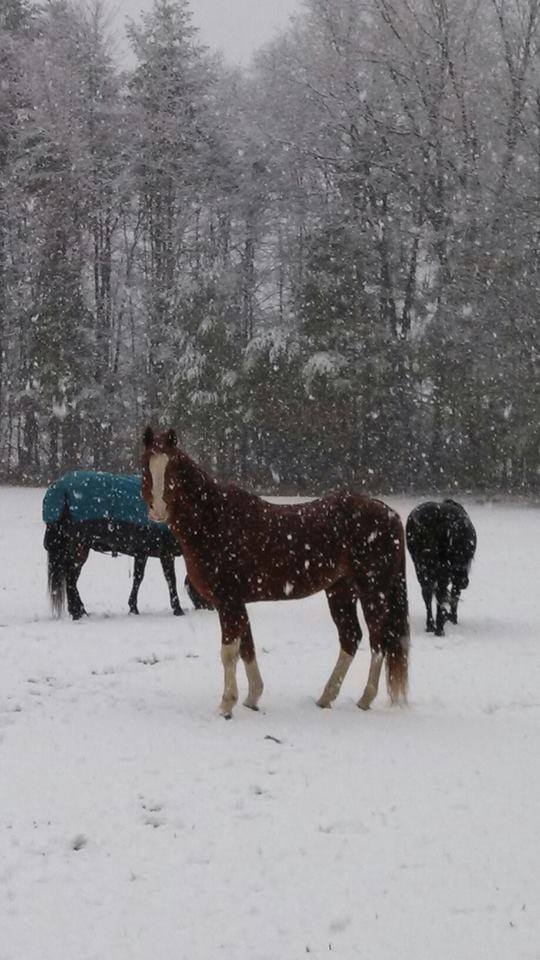Horse Health
Keep Horses Warm & Healthy When the Temperature Drops
First, pasture becomes limited or non-existent and horses must be fed hay. Hay loses many of the nutrients originally found in fresh grass, such as Omega 3, an essential fatty acid, vitamins E and C, beta carotene (for vitamin A production). In addition, exposure to direct sunlight declines during winter, limiting your horse’s ability to produce his own vitamin D. It is more important than ever to fill in these nutritional gaps by providing a vitamin/mineral supplement, like Grand Vite, Grand Complete or Grand Premium Plus that includes a stabilized ground flaxseed meal for necessary Omega-3 fatty acids, prebiotic to help his digestion and immune function optimally – so important with the change of temperature!
Hay Helps Your Horse Produce Body Heat and Adds Needed Calories
Alfalfa is beneficial for most horses because when combined with grass hay, it boosts the overall protein quality. This helps protect immune function and keep body proteins such as muscles, hair, skin, and hooves, in good condition. Consider offering your horse a 30/70 mixture of alfalfa/grass hay. A good rule of thumb — for every 10° F below freezing (wind chill temperature), feed 10% more hay than usual. But better yet, offer grass hay free-choice. His digestive system requires a steady supply of forage and the best way to do this (and the most convenient for you) is to keep hay available at all times, day and night. Grand Digest is an excellent supplement to add for all horses especially hard keepers that have digestive disturbances and trouble maintaining their weight which is even more challenging when the cold, wet weather sets in.
When Your Horse Needs More Calories
Wet and windy conditions increase energy needs, making it difficult for your horse to eat enough especially if he is his only feed source. Depending on the condition of your horse and his level of activity, you may need to add concentrates to the diet. A high fat commercial feed is fine for healthy horses. For the easy keeper, it is best to avoid cereal grains such as oats, corn, barley or sweet feeds. Beet pulp or alfalfa pellets provide calories without much starch and sugar. And don’t forget fat sources from stabilized ground flaxseed meal which is the most desirable – these are all concentrated sources of calories.
Your Horse May Need Joint Protection
Horses with arthritic joints may experience more soreness during cold weather. Just remember even though the show season has ended and your horse is taking a winter break, to continue supplementing with Glucosamine, MSM, HA and Collagen Type II, Omega-3 to protect and support your horse’s joints that are now aggravated with the cold, harsher winter weather.
Do You Need to Blanket Your Horse?
Don’t rush to blanket your horse. If he is healthy, of normal weight, and has a good winter coat, he can do very well in cold weather. Your horse’s winter coat is an excellent insulator, provided his skin doesn’t get wet. Therefore, most horses do not need to be blanketed as long as they have access to shelter from the wind, rain, and snow. If you must blanket your horse, use waterproof, breathable materials only, and monitor your horse’s coat under the blanket for sweating. When temperatures drop, a wet horse underneath a blanket can be colder than he would be with no blanket at all.
Sheltering Your Horse
Turnout is the ideal situation, along with a three-sided shelter or free access to a barn to provide protection against severe weather. If your horse is stalled, make sure the barn is well ventilated to avoid respiratory problems. But remember, if a horse is unaccustomed to stall living, this can be very stressful, resulting in ulcers and reduced immune function. So the more turnout you can provide the better.


